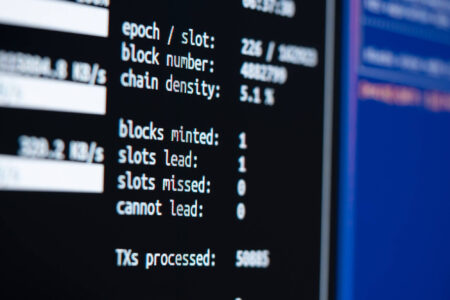zkSync is a scalable and high-performance layer-2 scaling solution for Ethereum. It enables faster and cheaper transactions on the Ethereum network by using zero-knowledge proofs to validate transactions without the need for every transaction to be processed on the Ethereum blockchain.
Therefore zkSync reduces the burden on the Ethereum (ETH) network, allowing for more transactions to be processed in a given amount of time. In addition to faster transactions, zkSync also provides increased privacy and security by enabling confidential transactions. This technology has the potential to play a significant role in the adoption and growth of decentralized applications and DeFi on the Ethereum network.
Advantages of zkSync
- Scalability: zkSync uses zero-knowledge proofs to validate transactions off-chain, which significantly reduces the burden on the Ethereum network. This allows for more transactions to be processed in a shorter amount of time, leading to increased scalability.
- Security: The zero-knowledge proofs used by zkSync provide increased security compared to traditional layer-2 solutions. The confidential transactions enabled by zkSync also increase the security of users' information and funds.
- Privacy: zkSync enables confidential transactions, which hide the amounts and identities involved in a transaction from the public. This feature makes it a valuable tool for users who value their privacy and security.
- Compatibility: zkSync is fully compatible with the Ethereum ecosystem and leverages the Ethereum blockchain for its security. This compatibility makes it easy for developers to integrate zkSync into their decentralized applications and for users to access the benefits of zkSync without changing their existing infrastructure.
- Decentralized: zkSync is a decentralized solution that is not controlled by any single entity. This decentralization ensures that the system is resistant to censorship, manipulation, and other malicious attacks.
Still not a holy grail for scaling solutions?
While zkSync is a compelling solution for scaling Ethereum by leveraging ZK rollup technology, it is important to acknowledge some potential drawbacks. One drawback is the limited smart contract functionality compared to the Ethereum mainnet. zkSync currently supports mainly simple transfers and token swaps, limiting the execution of more complex smart contracts. This limitation could hinder the seamless transition of decentralized applications (DApps) that rely heavily on complex smart contract functions.
In addition, the fact that zkSync relies on trusted setups in the initial phase could cause skepticism in the crypto community. Any compromise of these setups could potentially jeopardize security and privacy guarantees. As with any new technology, the advantages of zkSync's scalability and data protection must be weighed against these disadvantages.









